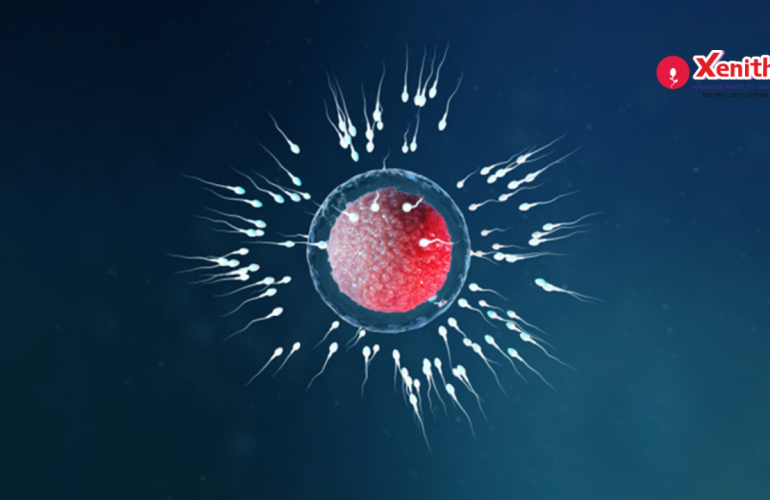After having had your first child, you may think that conceiving the next child will happen as easily. But in some cases, this may not be true. Secondary infertility occurs when you are not able to conceive or carry a baby to full term after having at least one child.
Secondary infertility shares many of the same characteristics as primary infertility which happens when couples have not able to conceive after trying for at least one year if you’re under 35 years of age, and after six months if you are older than 35. To be deemed as secondary infertility, the previous birth should have happened without the aid of fertility medications or other treatments like In Vitro Fertilization (IVF).
Causes of secondary infertility
Secondary infertility could be due to issues with either or both partners. Here are a few of the common reasons why couples may experience secondary infertility:
∙ Age can affect the quality or quantity of available eggs because women are born with a limited supply of eggs. As women get older, the number of eggs, as well as the quality of eggs, decrease. This is also true with men where sperm motility and sperm quality decrease with advancing age.
∙ Problems with the uterus. A previous Cesarean delivery can sometimes cause adhesions. Adhesions form during post-surgery healing and consist of fibrous scar tissue that often abnormally connects to internal organs like the uterus. Scarring could also occur due to dilation and curettage procedure done to remove tissue from inside the uterus to treat some uterine conditions or after a miscarriage. It could also be due to the growth of fibroids or polyps inside the uterus can impair pregnancy.
∙ Pelvic infections can block a fallopian tube preventing the egg and sperm from meeting.
∙ Endometriosis is a condition where tissue that normally grows inside the uterus grows somewhere else in the body like the ovaries or bowel surfaces.
∙ Polycystic Ovarian Syndrome (PCOS) is a hormonal disorder causing irregular menstrual periods. A woman with this condition has an excessive male hormones and the ovaries fail to release eggs regularly.
∙ Weight problems. Being overweight as well as underweight can affect fertility.
∙ Stress can be one of the factors leading to infertility.
Treatment options for secondary infertility
In order to assess the situation, the doctor may talk to you first about your current health, your medical history, and if anything has changed from your previous pregnancy. They might then run some blood tests, and semen analysis, do a pelvic exam, carry out an X-ray to check for blocked fallopian tubes, and have a transvaginal ultrasound. The main goal is to rule out any other male or female infertility issues.
Based on these results, a customized treatment is recommended which may include:
Medications. Oral or injectable fertility medications are prescribed to induce ovulation in women with an ovulatory disorder and normalize hormone levels. Fertility-enhancing medications could also be used to help stimulate ovulation. With more eggs available for fertilization per cycle, the hope is that at least one will result in a pregnancy.
Surgery. If there is a physiological problem, doctors may recommend surgery. Surgery can be carried out on patients to repair uterine-related issues like the removal of fibroids, polyps, or scar tissue or on patients dealing with advanced endometriosis. Surgery can also be done to repair testicular varicocele in men.
Advanced reproductive technology (ART). Intrauterine insemination (IUI) and In Vitro Fertilization (IVF) may be recommended as a treatment when other options have failed.
IUI is a procedure in which washed and concentrated sperm are placed directly into the uterus around the same time that the ovary releases an egg. This can increase the chance of fertilization as sperm need to travel less to reach the egg.
IVF is a more complicated procedure involving the removal of one or more eggs from a woman’s ovaries, allowing the sperm to fertilize it in a lab setting, and transferring the resulting embryo back into the uterus for implantation.
How to cope with secondary infertility
Coping with secondary infertility can take an emotional toll on a couple. It is often difficult for couples to understand why they are not able to conceive when the first pregnancy was non-problematic. It could also be tough with lots of doctor’s appointments, tests, and medications as well as time away from the other child. Staying positive will be a great benefit to couples struggling with secondary infertility. Avoid placing the blame on yourself or others. Focus on things you can control like self-care, managing stress, having a support group, and living a healthy lifestyle. Don’t put off getting help for secondary infertility. Usually, couples are older and the golden years of fertility may slip by. If you have concerns that you may be experiencing secondary infertility, get a full check-up done at Xenith Advanced Fertility Centre. We have helped hundreds of couples with infertility issues achieve their dreams to grow their family!




